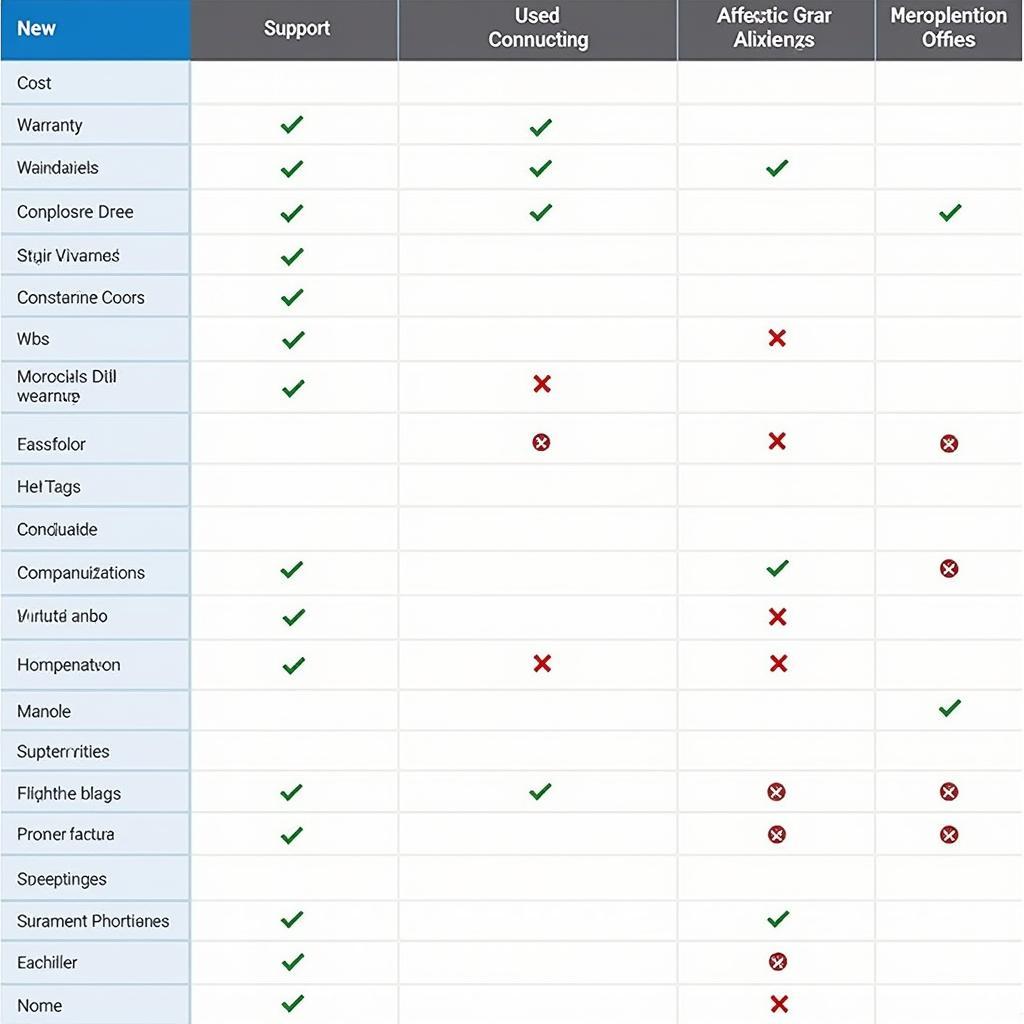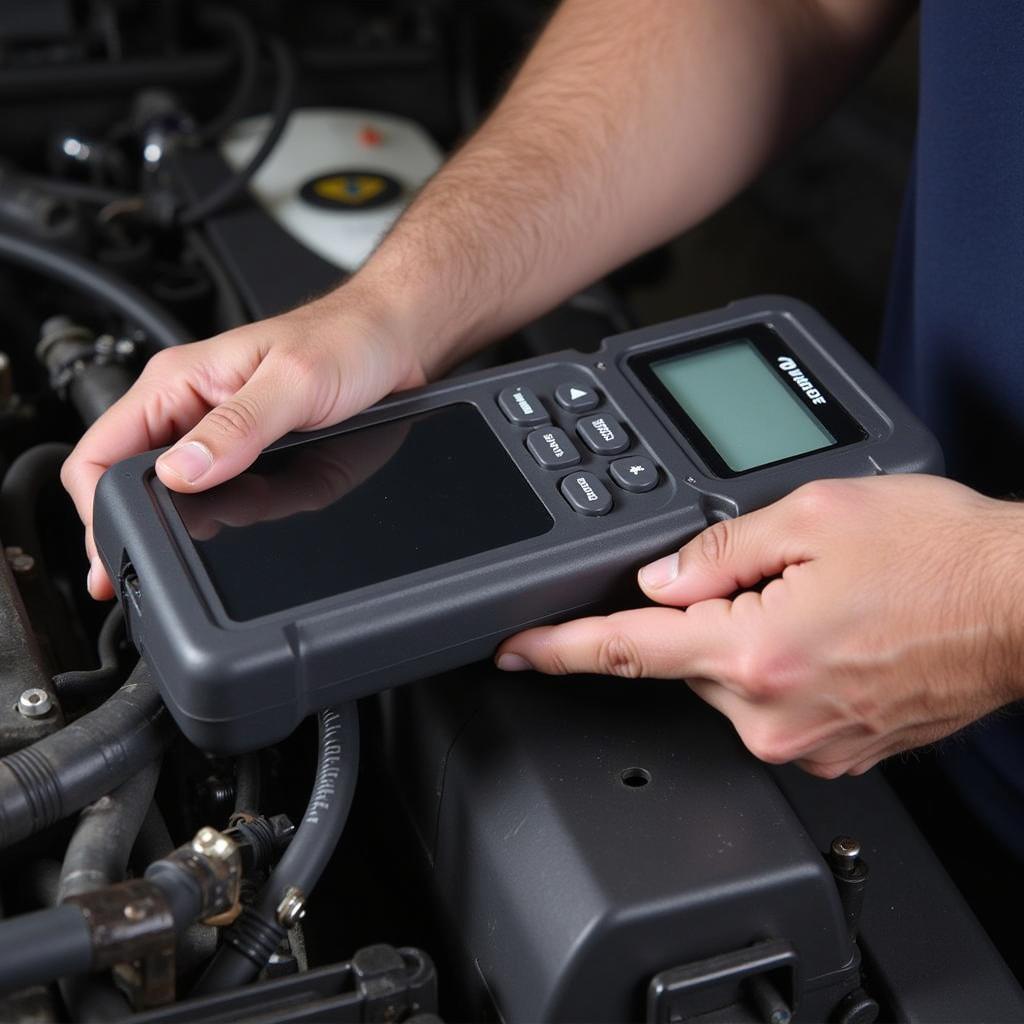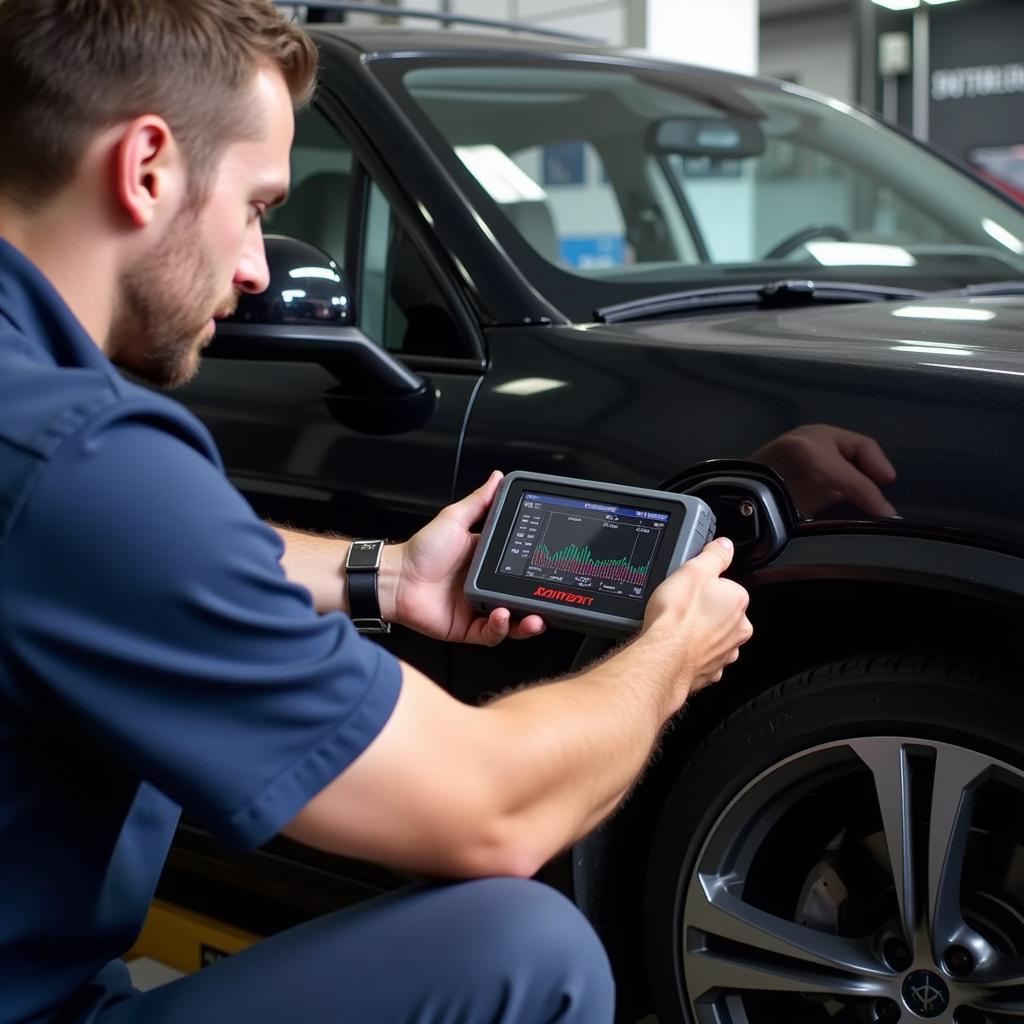Choosing between a new and used car diagnostic tool can feel like navigating a minefield. Both options have their pros and cons, and making the right decision depends heavily on your individual needs and budget. This guide breaks down the essential factors to consider when comparing buying new vs used car tool options, so you can make an informed purchase.
New vs Used Car Diagnostic Tools: Key Considerations
Several factors influence whether buying new or used is best for you. These include your budget, the features you need, the level of support you expect, and even the types of vehicles you work on.
Budget: Balancing Cost and Value
Perhaps the most obvious factor is cost. New tools, understandably, command a higher price. However, that higher price often comes with the latest technology, comprehensive warranties, and guaranteed functionality. Used tools offer potential cost savings but require careful inspection and research to avoid inheriting someone else’s problems.
Features and Functionality: Staying Ahead of the Curve
The constantly evolving automotive landscape demands up-to-date diagnostic tools. New tools offer the latest features, software updates, and compatibility with newer vehicle models. Used tools might lag behind in technology, particularly if they haven’t been regularly updated. Consider the specific features essential for your work and the types of vehicles you service.
Warranty and Support: Peace of Mind vs. DIY
New tools generally come with manufacturer warranties, providing peace of mind and recourse if any issues arise. Used tools, unless purchased from a reputable reseller, might offer limited or no warranty. This leaves you responsible for repairs and maintenance, potentially adding to the overall cost.
 New vs Used Diagnostic Tool Comparison Table
New vs Used Diagnostic Tool Comparison Table
Navigating the Used Car Tool Market: Tips and Tricks
If the allure of a lower price tag draws you towards the used market, proceed with caution. Here are some crucial tips to avoid costly mistakes:
- Verify Functionality: Ensure the tool powers on, connects to vehicles, and performs basic diagnostic functions.
- Check for Updates: Outdated software can limit functionality. Confirm the tool is updatable and research the cost of any necessary updates.
- Inspect Cables and Connectors: Damaged cables and connectors can hinder performance. Examine them closely for wear and tear.
- Inquire About History: If possible, learn about the tool’s previous usage, maintenance history, and reason for sale.
 Inspecting a Used Car Diagnostic Tool for Damage
Inspecting a Used Car Diagnostic Tool for Damage
What if my budget is limited?
Even on a tight budget, there are strategies to get the diagnostic tool you need. Consider refurbished tools, entry-level models, or financing options. Refurbished tools offer a balance between cost and quality, while entry-level models provide basic functionality at a lower price.
Expert Insight: John Smith, ASE Certified Master Technician
“Investing in a quality diagnostic tool is essential for any serious automotive professional. While a used tool can offer cost savings, remember that cutting corners can lead to more expenses down the road. Consider your long-term needs and prioritize reliability.”
Should I buy a new or used car diagnostic tool for my workshop?
The decision ultimately depends on your specific requirements. If having the latest technology, comprehensive support, and peace of mind are paramount, a new tool is the way to go. If budget is a primary concern and you’re comfortable with some level of risk, a used tool might be a viable option.
Expert Insight: Maria Garcia, Automotive Diagnostics Instructor
“A well-maintained used diagnostic tool can be a valuable asset, especially for those starting out. However, thorough inspection and research are crucial. Don’t hesitate to seek advice from experienced technicians or reputable sellers.”
Conclusion
Comparing buying new vs used car tool options requires careful consideration of your budget, needs, and risk tolerance. Weigh the pros and cons of each option, research thoroughly, and prioritize reliability and functionality to ensure you make the right investment for your automotive diagnostic needs.
 Mechanic Using a Diagnostic Tool on a Car
Mechanic Using a Diagnostic Tool on a Car
FAQ
- What are the benefits of buying a new diagnostic tool? (New tools offer the latest technology, warranties, and manufacturer support.)
- What are the risks of buying a used diagnostic tool? (Risks include potential malfunctions, outdated software, and lack of warranty.)
- How can I verify the functionality of a used diagnostic tool? (Test it on a vehicle, check for updates, and inspect cables and connectors.)
- Are refurbished tools a good alternative? (Refurbished tools offer a balance between cost and quality, often with limited warranties.)
- What should I consider when choosing between new and used? (Consider budget, features, support, and the types of vehicles you service.)
- Where can I find reliable used diagnostic tools? (Reputable resellers, online marketplaces, and industry forums can be good sources.)
- How can I ensure I’m getting a good deal on a used tool? (Research comparable prices, inspect the tool thoroughly, and negotiate with the seller.)
Need help deciding? Contact us via WhatsApp: +1(641)206-8880, Email: [email protected] or visit us at 910 Cedar Lane, Chicago, IL 60605, USA. Our 24/7 customer support team is ready to assist you.

Leave a Reply